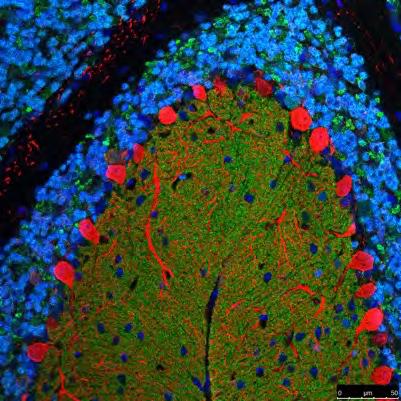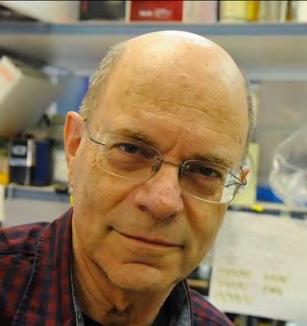
1 minute read
Cancer and Molecular Therapies
Prof. Yossi Shiloh
Genome instability in disease
The Shiloh lab studies the implications of genome instability on our health. Our DNA is constantly damaged by internal and external DNA damaging agents. In response to this ongoing threat to the genome, the DNA damage response (DDR) – a broad signaling network is activated. The Shiloh lab discovered a key player in this system – the protein kinase, ATM. This discovery was a result of a long quest to identify the gene responsible for a human genome instability syndrome called ataxiatelangiectasia (A-T). A-T involves cerebellar https://www.tau.ac.il/~yossih/
Prof. Shiloh heads the Myers Laboratory for Cancer Genetics at the Department of Human Molecular Genetics and Biochemistry. He obtained his Ph.D. in Human Genetics at The Hebrew University of Jerusalem and trained at the Harvard Medical School, University of Michigan, New York University Cancer Center, Memorial Sloan Kettering Cancer Center and Rockefeller University, and was a Fogarty Fellow at the U.S. National Institutes of Health. He is a member of The Israel National Academy of Sciences and Humanities and won the 2005 EMET Prize in Life Sciences, the American Association of Cancer Research G.H.A. Clowes Memorial Award for Outstanding Accomplishments in Cancer Research, the Israel Prize in Life Sciences and the Olav Thon Prize in Natural Sciences and Medicine (Oslo, Norway). Shiloh is a member of the US National Academy of Sciences. He has dedicated most of his scientific career to understanding A-T. He gives popular scientific lectures to the general public on the medical, social and ethical implications of the genome revolution.

Mouse cerebellum. Purkinje cells, which gradually disappear in A-T patients, highlighted in red.



